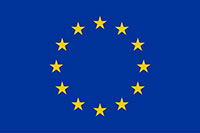Finalising EU project STORE&GO: Power-to-Gas as a storage modality for flexible sustainable energy systems.

Early March the Road Map, including recommendations concluded the European research project STORE&GO. A cooperation of 27 European partners, the Horizon 2020 project STORE&GO during 4 years (2016 – 2020) researched the technological, economic, social and legal integration of Power-to-Gas as a storage modality for flexible sustainable energy systems. The total project amounted to approximately € 28 million, including the financing of contributions by, among others, the University of Groningen, Hanze UAS Groningen, Energy Delta Institute-part-of-New Energy Coalition and Energy Valley-part-of-New Energy Coalition.
![]()
At three locations in Germany, Switzerland and Italy, demo installations have been realised that have produced methane from CO2 and H2 using various innovative technologies. In addition, the remaining technical, economic, social and legal obstacles have been layed out in various work packages including recommendations on how to solve said obstacles in a summary roadmap and accompanying policy recommendations. These were presented to some members of the European Parliament and interested parties in Brussels in December 2019.
The final symposium took place on 17 and 18 February 2020 in Karlsruhe (Germany).
The conclusions of the project are summarised in the roadmap “Innovative large-scale energy storage technologies and Power-to-Gas concepts after optimisation: Roadmap for large-scale storage based PtG conversion in the EU up to 2050”.
https://www.storeandgo.info/fileadmin/downloads/publications/STORE_GO-Power-to-Gas-Roadmap.pdf
Summary:
Renewable gases – such as biogas, synthetic gas and hydrogen – will play an important role in the future energy system: power-to-gas will be the key technology. Based on the experiences of the demo installations, there are no technical obstacles. The financial feasibility and economic merits of P2G have been extensively investigated by the Groningen team using sensitivity analyses. The roadmap offers a number of suggestions for measures to accelerate the development of a feasible business case.
More information about the project can be found here: https://www.storeandgo.info/
The role of New Energy Coalition within the project was twofold. On the one hand, Energy Valley provided support at the start of the project for the formulation of the activities of the Hanze University of Applied Sciences and for the initial design of the implementation. During the course of the project, the project and the possibilities for implementation were brought to the attention of the Energy Valley-network.
Furthermore, EDI Business School was responsible for the design and development of a three-day training programme, including the design of an online environment for this purpose. During the total of 8 editions of the training ‘Power to (the) Molecules’, some 200 participants received an overview of power-to-gas theories and the STORE&GO project’s contributions. In addition to the lectures, each programme included a tour of one of the demo installations, a research institute or a company relevant to the programme.
About STORE&GO
In STORE&GO, 27 European partners have been investigating the potential of power-to-gas applications in the European energy network since 1 March 2016. STORE&GO believes that Europe can reduce its carbon footprint while meeting a large part of its future energy needs through the efficient use of renewable energy. The spirit of STORE&GO is multinational and characterized by interdisciplinary cooperation. The three pilot plants incorporate new methanisation technologies and each concept has been adapted to the specific demonstration site and the very different test environments. In this way, the advantages of PtG technology in different environments could be analysed and compared.
HORIZON 2020
This project has received funding from the European Union’s Horizon 2020 research and innovation programme under grant agreement No 691797.



